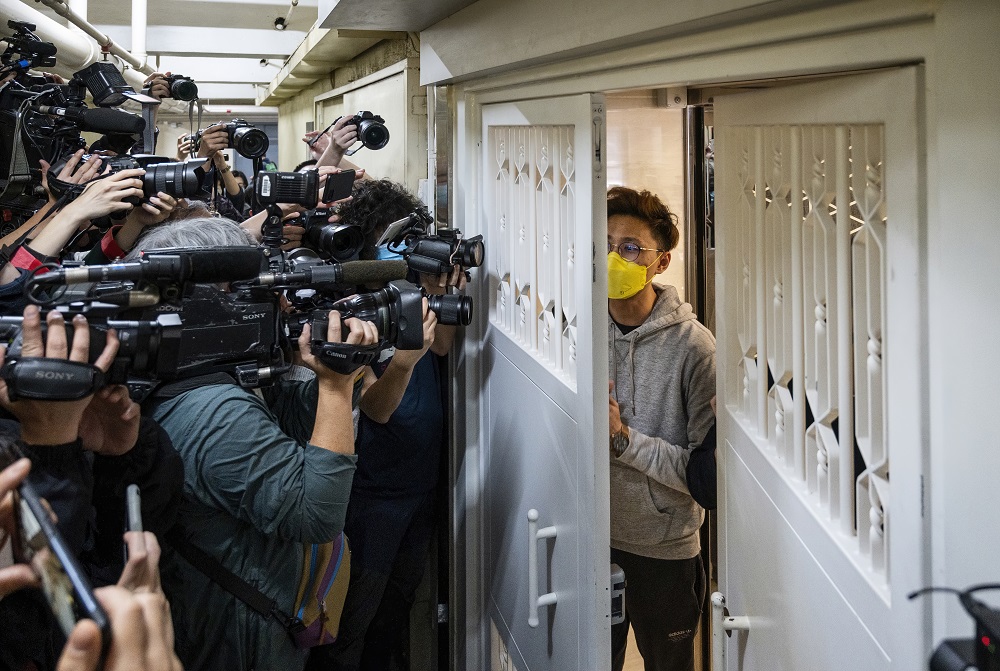Over the past week, two independent media outlets in Hong Kong were shut down after 200 policemen raided the office of Stand News and arrested seven senior editors. The IPI global network condemns Hong Kong’s continued, outrageous assault on press freedom at the direction of Beijing.
In the early morning of December 29, some 200 national security police officers raided independent news site Stand News, the Hong Kong Journalists Association (HKJA) reported. The police arrested six current and former directors and senior staff of The Stand News, as well as Ronson Chan Ron-sing, the deputy assignment editor of Stand News and the chairman of HKJA. The website was shut down shortly thereafter.
Just a few days later, on January 2, the independent news site CitizenNews announced it would cease operations as it could no longer ensure its staff’s safety. “Sadly, we can no longer strive to turn our beliefs into reality without fear because of the sea change in the society of the past”, the outlet wrote in a statement that it posted on Twitter. “In the face of a crisis, we must ensure the safety and well-being of everyone who are on board.” As of January 4, the website is no longer operational. CitizenNews said in its statement that what lies ahead are “not just pouring rains or blowing winds, but hurricanes and tsunamis”.
“The closures of Stand News and CitizenNews are a great loss for Hong Kong’s media sector. They reconfirm that Hong Kong, at the direction of China’s central government, is quickly moving to eliminate press freedom and silence independent sources of news and information in the territory”, IPI Deputy Director Scott Griffen said. “We call on the Hong Kong authorities to end their blatant assault on media freedom and instead protect the fundamental right of Hong Kong’s people to independent information.”
In a press conference on Tuesday, Hong Kong Chief Executive Carrie Lam denied that press freedom in the territory “faces collapse”, as described in a report by the Financial Times. Lam said that media organizations had to “respect and comply with the law”.
But Lam’s cynical reference to the rule of law ignores the fact that the Hong Kong and Chinese authorities have successively introduced legislation designed to curtail fundamental rights in Hong Kong. Press freedom has been especially at risk since 2019, when protesters flooded Hong Kong’s streets over a controversial bill that would grant authorities the right to extradite suspects in criminal cases to mainland China. Although Hong Kong eventually withdrew the bill, the protests evolved into a wider pro-democracy movement.
Responding to the movement, China introduced a National Security Law for Hong Kong in 2020 that amounted to the imposition of mainland China’s authoritarian rule on Hong Kong. It gives Beijing sweeping power over the territory as well as a free hand to crack down on dissent and opposition.
According to media experts, the security law has become a direct threat to journalism, leading to raids of newsrooms, arrests of editors and the closure of several independent news outlets. Dissenting voices have been silenced and jailed, like Hong Kong media entrepreneur and activist Jimmy Lai and six of his colleagues working for the pro-democracy newspaper Apple Daily. That paper has been defunct since 2021, after officials froze a significant amount of its financial assets and Hong Kong security officers raided its offices, arrested several of the newspaper’s executives, and seized computed equipment. As recently as early December 2021, Lai was sentenced to 13 months in prison for urging participation in last year’s banned Tiananmen vigil, together with seven others who received sentences up to 14 months.
The raids and arrests have led to growing fear and self-censorship among independent journalists working in Hong Kong, as a Hong Kong media expert told IPI already in June 2020. “The systematic dismantling of the city’s former role as a safe haven for journalists will continue”, the expert predicted.
